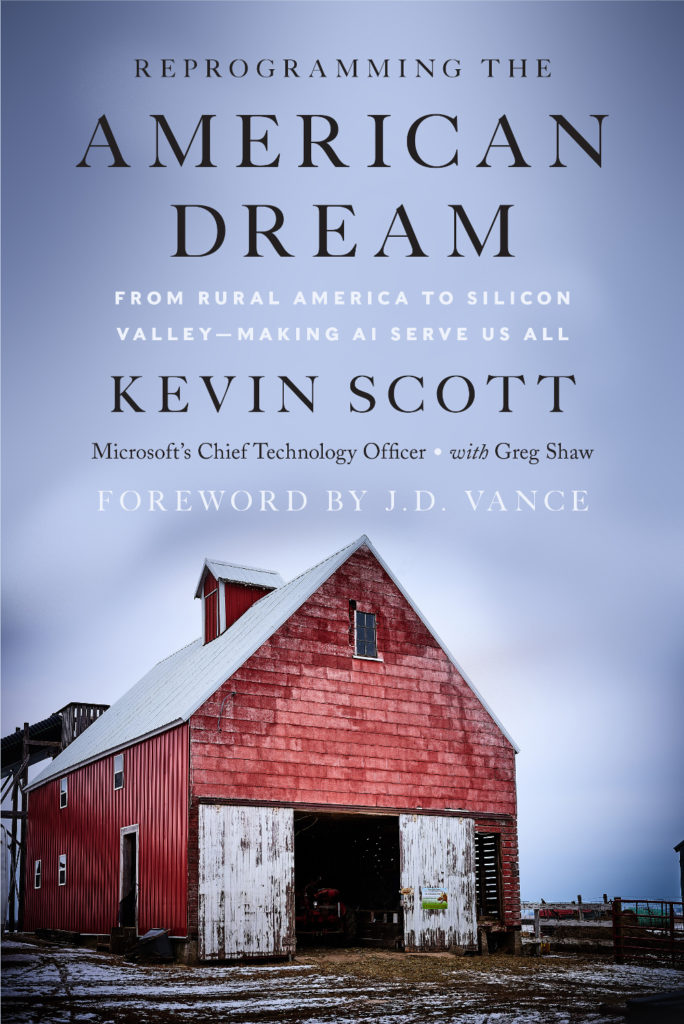Reprogramming the American Dream
From Rural America to Silicon Valley - Making AI Serve Us All
In this timely book written from the perspective of a technologist whose life started in rural America and wound its way to Silicon Valley, Kevin Scott, Microsoft’s chief technology officer tackles one of the most critical issues facing society today: the future of artificial intelligence and how it can be realistically used to serve the interests of everyone, not just the privileged few.
Hear Kevin Scott and JD Vance talk about AI and the American dream
Available now at these and other booksellers:
About the book
There are two prevailing stories about AI: for rural and heartland workers with 20th century skills, a dystopian tale of steadily increasing job destruction; for urban knowledge workers and the professional class, a utopian tale of enhanced productivity and convenience. But there is a third way to look at this technology that will revolutionize the workplace and ultimately the world. Kevin Scott argues that AI has the potential to create opportunity for everyone and help solve some of our most vexing problems.
As the chief technology officer at Microsoft, advisor, and investor, Kevin is deeply involved in the development of AI applications, yet mindful of their potential impact on workers—perspective he gained firsthand growing up in rural Virginia. Yes, the AI Revolution will radically disrupt economics and employment for everyone for generations to come. But what if leaders prioritized the programming of both future technology and public policy to work together to find solutions ahead of the coming AI epoch? Like public health, the space program, climate change and public education, we need international understanding and collaboration on the future of AI and work. For Scott, the crucial question facing all of us is this: How do we work to ensure that the continued development of AI allows us to keep the American Dream alive?
In this thoughtful, informed guide, Kevin offers an insightful roadmap to find the answer. He hopes that readers and leaders learn to appreciate the needs of those not living in prosperous urban areas, as well as support initiatives such as rural broadband and digital skills for the workforce of the future.






